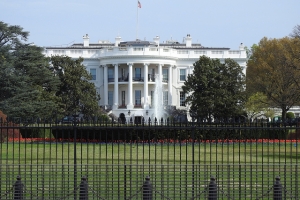Support migrant centric journalism today and donate

 • Watch This Video
• Watch This VideoThe Homeland Security Department for the United States used outdated information when it decided to continue letting visitors from 27 countries enter the U.S. without visas, congressional investigators reported this week. The implication is that there may be a change in the visa waiver program soon to accommodate the new information.
After reviews in 2004, the department decided the visa waiver program should continue for all 27 countries participating in it. The reviews, however, did not always contain timely information on the latest risks posed by the participating countries, the Government Accountability Office, Congress' investigative arm, said Tuesday.
The investigators said the assessments were done from May to September 2004, and a final report was sent to Congress more than a year later, in November 2005. Under the visa waiver program, business travelers and tourists from 27 nations may enter the United States for months using only a passport. In return, U.S. residents can enter those countries with only a passport.
The program came under scrutiny after the Sept. 11 terrorist attacks on the Pentagon and the World Trade Center, although none of the hijackers entered the U.S. through it. President Bush has requested that more countries to the program to increase it beyond the current 27.
Congress in 2002 ordered a review of security risks posed by participating countries. The Homeland Security Department created an Office of International Enforcement to conduct the reviews, which began two years later and are to be done every two years.
The U.S. Government Accounting Office (GAO) said the two employees assigned to the office aren't enough to monitor risks in participating countries effectively. Homeland Security could make better use of existing resources by establishing points of contact within U.S. embassies, it added.
The office did stop the acceptance of temporary German passports, but has had trouble obtaining information on lost and stolen passports, the GAO said.
Although homeland security officials want countries to report lost and stolen passports to Interpol, the U.S. has no mechanism for countries to do so. Four of the countries don't report such information to Interpol and some do not report it on a regular basis, the GAO said.
Jarrod Agen, an agency spokesman, said many issues identified in the GAO report have been addressed. He said countries are evaluated individually and allowed to participate in the program only when they meet requirements of U.S. immigration law and mandates from Congress.
House Judiciary Committee Chairman James Sensenbrenner, R-Wis., requested the GAO report. He said he was concerned about the gaps in reporting lost and stolen passports and he suggested adding more employees to the Office of International Enforcement.
No immediate actions are reported to be requested. However, the results of the report indicate that review of the ''open-visa'' policy is likely in the immediate future. Implied by the "faults" reported in the current program is the possibility that the number of countries will be reduced from 27 to a lower number, pending further agreements between the U.S. and other countries.
Related:• US electronic passport program takes effect
• Bush administration announces end of 'catch-and-release' for illegals
• US state by state immigration rules
• US Republican party shuts down immigration reform debate





















